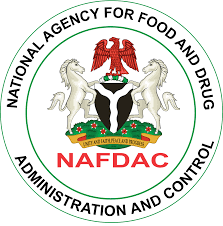AFRICA FOCUS
NAFDAC says pesticides pose dangers; uphold ban

On Wednesday, May 3rd, the National Agency for Food and Drugs Administration and Control (NAFDAC) affirmed that it would stand by its ban on the use of certain hazardous pesticides in the country.
The management of NAFDAC passed this information across in a press release signed by its Director General, Prof. Mojisola Adeyeye, whilst also soliciting the cooperation of the public and all relevant stakeholders in their efforts to rid the nation of these hazardous pesticides.
NAFDAC explained that the dangers posed by pesticides are of immense concern to the Agency and there have been recent concerns from stakeholders such as the report of the study conducted by Heinrich Boll Foundation; a non-governmental organisation that claimed that 40% of pesticides used in Nigeria had been banned in the European Union (EU).
It said that there was also an alert received from the Federal Ministry of Agriculture and Rural Development (FMARD) cautioning on the possibility that the EU and United Kingdom (UK) were exporting banned Neonicotinoid Pesticides to Nigeria and other poorer countries.
As a result, NAFDAC placed emphasis on Chlorpyrifos and its variants due to their harmful effects on humans, animals, beneficial insects and the environment.
During her first term as the Director General of NAFDAC, Adeyeye gave a directive to review and analyse the list of registered pesticides and agrochemical active ingredients in the agency’s Registered Product Automated Database (NARPAD) vis-à-vis actives banned, non-approved or restricted in the European Union, other countries or by relevant international organisations.
That led to several meetings with stakeholders and a November 2022 meeting when timelines were set for the phase-out ban of the various pesticides.
Pesticides are applied both indoors and outdoors for the management of pests, vector-borne diseases, and for crop protection.
They are sometimes impregnated in textiles, paints, carpets, and treated wood to control pests and fungi. However, the toxicity associated with the misuse and abuse of pesticides is worrisome as it affects food safety and food security.
The toxicity of pesticides is managed through stringent regulatory activities to reduce severe health implications on humans, crops, and the environment. This can be achieved through awareness and continual sensitization of stakeholders.
“The mandate of NAFDAC as established by Act Cap N1 Laws of the Federation of Nigeria 2004 is to regulate and control the manufacture, importation, exportation, advertisement, distribution, sale, and use of food, drugs, cosmetics, medical devices, bottled water, detergents, and chemicals (referred to as regulated products).
“Safeguarding the health of the nation is paramount to the Agency,” NAFDAC wrote.
The outcome of the review of NAFDAC’s database for the pesticides was shared with stakeholders at a three day virtual stakeholder engagements held on the 22nd, 24th, and 29th of November 2022.
It focused on the proposed phase-out/ban of these active ingredients and had in attendance, proponent holders of marketing authorizations, Non-Governmental Organisations, Associations (All Farmers Association of Nigeria, CropLife Nigeria, Nigeria Agro-Input Dealers Association etc), Ministries, Departments and Agencies (MDAs), Research institutes amongst others.


















